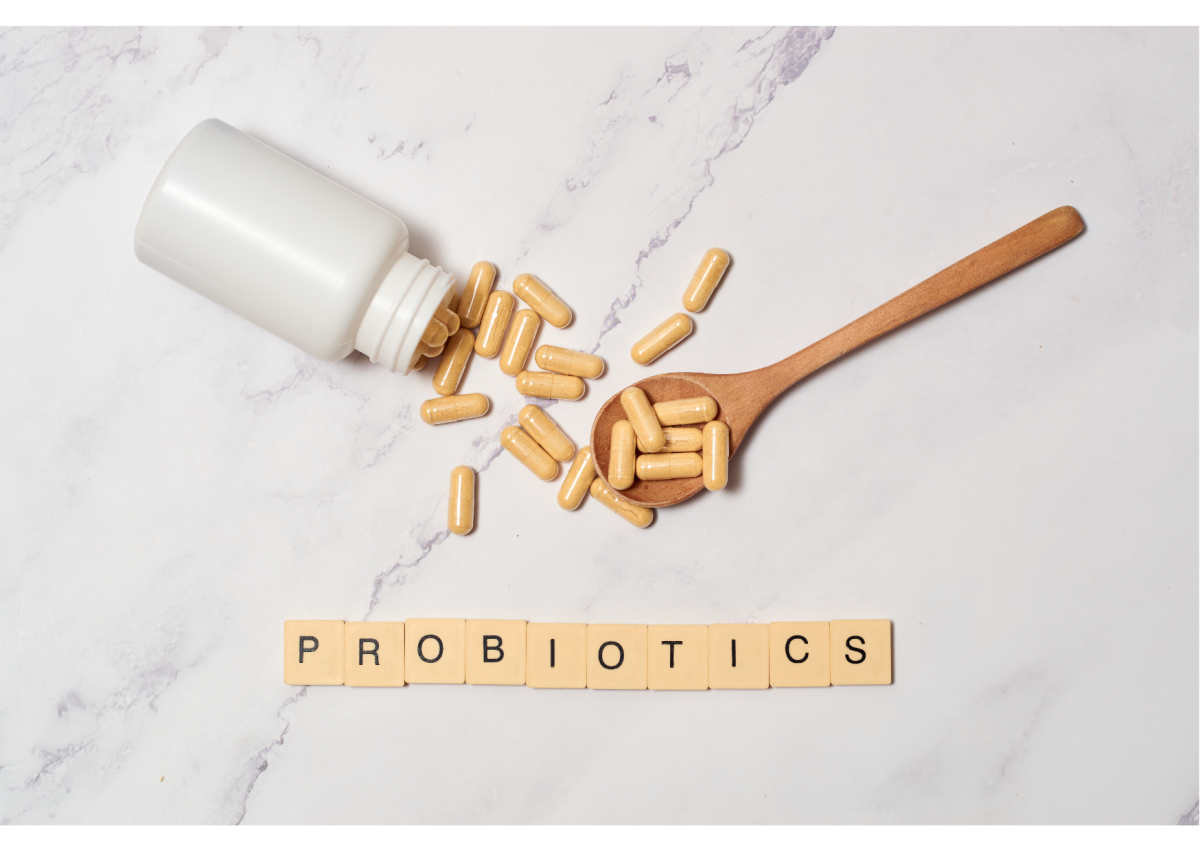The best probiotic for IBS d (5 research backed options)
- Supplements
Are you looking for the best probiotic for IBS diarrhea? Read on!
Probiotics are likely the first thing you will think about when considering a supplement to support your IBS diarrhea.
However, trying to understand probiotics can be very confusing!
This article will delve into the world of probiotics and the specific bacterial strains within probiotics that can help you with your IBS diarrhea.

What is IBS-D?
IBS-D is a subtype of irritable bowel syndrome. People with IBS-D have predominantly diarrhea type symptoms.
You can find further information on IBS-D from our other post ‘ What is IBS-D, and how can you manage it?’
What are probiotics?
Probiotics are live microorganisms (bacteria, yeast, spores, etc) that, when taken in adequate amounts, provide a benefit to the host (you) (1).
As IBS can be affected by the brain-gut axis (2), targeting the gut microbiota can help to increase its diversity and therefore, improve gastrointestinal symptoms.
For an in depth guide on probiotics read our other post: ‘Probiotics for IBS.’
What is the best probiotic for IBS d?
Currently, there is limited low-quality evidence using probiotics specifically for IBS diarrhea (3).
Some probiotic strains which have been studied on IBS-D include:
Saccharomyces Boulardii CNCM I-745
Saccharomyces boulardii is a yeast probiotic.
A study found that saccharomyces boulardii helps to regulate the consistency of stools in people who have IBS-D (4).
Lactobacillus Planarum CECT 7484
One study gave people with IBS-D a capsule containing lactobacillus planarum CECT 7484 for 12 weeks (5).
Through symptom diaries, there were reported reduction in overall IBS symptoms, including abdominal pain, gas, bloating and diarrhea from self assessments.
This study also demonstrated an improvement in quality of life in people with IBS-D and was well tolerated by these individuals.
L. plantarum Lpla33 (DSM34428)
Research from a randomized, double-blind, placebo-controlled study over 8 weeks tested L. plantarum Lpla33 in adults with IBS-D (6).
Overall abdominal pain, abdominal distention, bowel habits and quality of life were better in those taking the probiotic.
This study demonstrated that L. plantarum Lpla33 can improve IBS-D symptom severity and help regulate bowel habits in adults with IBS-D.
Do multistrain probiotics help with IBS-D?
The term ‘multistrain’ just refers to a probiotic supplement containing 2 or more strains of microorganisms.
So you cannot say all multistrain probiotics are good for IBS-D. It really depends whether that specific combination has been shown to work or not.
You may find this quite confusing as some products claim to have included many different live microorganisms which on their own have been proven to help with IBS-D.
However, when you bring live microorganisms together they will interact with each other as well as your body and so their effect is different.
One study found that a multistrain probiotic can improve stool frequency and associated abdominal pain in adults with IBS-D (7).
So this probiotic may be one of the best probiotics for IBS D.
The strains within the studied probiotic included:
- Lactobacillus paracaseiPXN 37
- Lactobacillus plantarumPXN 47
- Lactobacillus rhamnosusPXN 54
- Bacillus subtilisPXN
- Bifidobacterium bifidumPXN 23
- Bifidobacterium brevePXN 25
- Bifidobacterium longumPXN 30
- Lactobacillus helveticusPXN 35
- Lactococcus lactisssp.lactisPXN 63
- Streptococcus thermophilusPXN 66
- Bifidobacterium infantisPXN 27
- Lactobacillus delbrueckiissp.bulgaricusPXN 39
- Lactobacillus helveticusPXN 45
- Lactobacillus salivariusPXN 57
Another study researched a different multistrain probiotic containing (8):
- Lactobacillus acidophilus
- Lactobacillus plantarum
- Lactobacillus rhamnosus
- Bifidobacterium breve
- Bifidobacterium lactis
- Bifidobacterium longum
- Streptococcus thermophilus1.0×10 CFU
This mixture of bacteria strains were shown to improve stool consistency in people with IBS-D (8).
Probiotics containing multiple bacterial strains can be purchased online or in store. Make sure you try one brand at a time, to determine if that particular brand made a difference.
Can synbiotics help with IBS diarrhea?
A synbiotic is a mixture of probiotics and prebiotics providing benefits to the host (9). Again, you must find out whether the specific product has been shown to improve IBS-D symptoms.
Research on synbiotics and IBS-D specifically are limited.
However, one study found that a multi-strain synbiotic significantly improved IBS diarrhea symptoms and was well-tolerated too (10).
So this may make your list for the best probiotics for IBS-d.
Further research into synbiotics is needed before other recommendations are made as there are limited studies to date.

How do I take probiotics?
Now you have found out about the best probiotics for IBS-d we are sure you will have some more practical questions.
The best time to take probiotics for IBS can vary depending on the bacterial strains within the probiotic.
You can take probiotics before your meal and at the same time each day.
Read the manufacturer’s instructions – some probiotics may be taken once a day and others may be more.
Current guidelines state that you should take probiotics for up to 12 weeks. If you find no symptom improvement after this, you can discontinue taking them (11).
Summary
When looking for the best probiotic for IBS diarrhea, consider the bacterial strains within the probiotic.
Evidence suggests that specific strains or multistrain probiotics can help alleviate symptoms if you have IBS-D.
If you have been prescribed medications, continue to take these as instructed – probiotics should not be taken as an alternative to medications or medical treatments.
Probiotics can be considered as part of diet therapy for IBS-D, in addition to specific dietary advice.